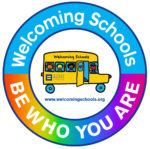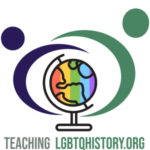LGBTQIA2+
The Human Rights Campaign (HRC) has provided a website hub network with various resources to support LGBTQ+ community members and families navigate executive orders, federal actions, and policies.
PFLAG has curated resources for those new to the conversation surrounding gender identity. These resources include national publications, online academies, books, films, and special topics.
To prepare and support communities as they participate in Trans Awareness Month (November), Advocates for Youth has prepared a toolkit with resources for immediate implementation. Resources include book lists, infographics, and video clips.
Together in a collaborative partnership, the Human Rights Campaign Foundation and OutVote offer a Campus Organizing Guide to the 2024 Election. This resource provides information and a step-by-step guide for college students to participate in the election as active voters. If a student is not yet registered to vote, the Campus Organizing Guide also provides information on how to do so.
The Family Acceptance Project at San Francisco State University offers the LGBTQ Youth & Family Resources page as an additional opportunity for families to access key resources and find support services.
The Family Acceptance Project at San Francisco State University offers research-based intervention, education, and policy initiatives to support families and youth. These initiatives promote well-being and offer preventative measures to the health and mental risks faced by lesbian, gay, bisexual, transgender and queer-identified (LGBTQ) children and youth.
The Family Acceptance Project puts research into practice and offers a myriad of resources to both families and educational providers in order to build greater inclusivity and acceptance.
Safety on college campuses are essential to student well-being, particularly for students who identify as LGBTQ+. This resource, provided by College Educated, is designed to support students, parents, teachers, and campus professionals with a guide to navigate challenges faced while participating on a college campus.
The hope of this guide is to provide a resource that supports the LGBTQ student, parents, teachers and campus professionals to increase understanding, provide resources and education and hopefully help make connections that will keep an LGBTQ in college and successful as they transition to the workplace.
The Human Rights Campaign Foundation’s Welcoming Schools has released the 2023 Back To School Toolkit full of Elementary and Secondary Resources, booklists, video discussion guides, and much more! Create a welcoming and inclusive classroom for the new school year with Welcoming Schools resources.
HRC Foundation’s Welcoming Schools is the most comprehensive bias-based bullying prevention program in the nation to provide LGBTQ+ and gender inclusive professional development training, lesson plans, booklists and resources specifically designed for educators and youth-serving professionals. Our program uses an intersectional, anti-racist lens dedicated to actionable policies and practices. We uplift school communities with critical tools to embrace family diversity, create LGBTQ+ and gender inclusive schools, prevent bias-based bullying, and support transgender and non-binary students.
This website is dedicated to “Teaching LGBTQ History” which primarily focuses on providing resources and materials that fulfill the requirements put forth by the FAIR Education Act with regards to LGBTQ history. This site serves as a comprehensive reference hub for information regarding the FAIR Education Act, as well as for History Framework Lesson Plans and General LGBTQ Lesson Plans, and resources to support teachers as they work with the new content required by the FAIR Education Act. We are honored to work together with you to help California’s history and social sciences education be more Fair, Accurate, Inclusive and Respectful for all K-12 students.
At The Trevor Project, we’re always working to create a safer world for LGBTQ youth. Our guide on “How to Support Bisexual Youth: Ways to Care for Bisexual, Pansexual, Fluid, and Queer Youth Who are Attracted to More than One Gender” is an introductory educational resource that covers a wide range of topics and best practices for supporting the bisexual youth in your life, which may include yourself! Educating ourselves is an ongoing practice, and how we define and express identity is an ongoing journey.
The Understanding LGBTQ+ Identity: A Toolkit for Educators Collection offers a series of digital media resources to help administrators, guidance counselors, and educators understand and effectively address the complex and difficult issues faced by LGBTQ students. The collection features short segments of video content from WNET’s groundbreaking LGBTQ series First Person, a digital series that delivers candid personal narratives illustrating larger conversations about gender, sexuality, social norms, and identity development. The video content is scaffolded by a suite of materials (informational text, conversation guides, discussion questions, and teaching tips) to facilitate their use in professional development settings. When used in tandem, the videos and accompanying educational resources will help promote understanding, awareness, and self-esteem.









